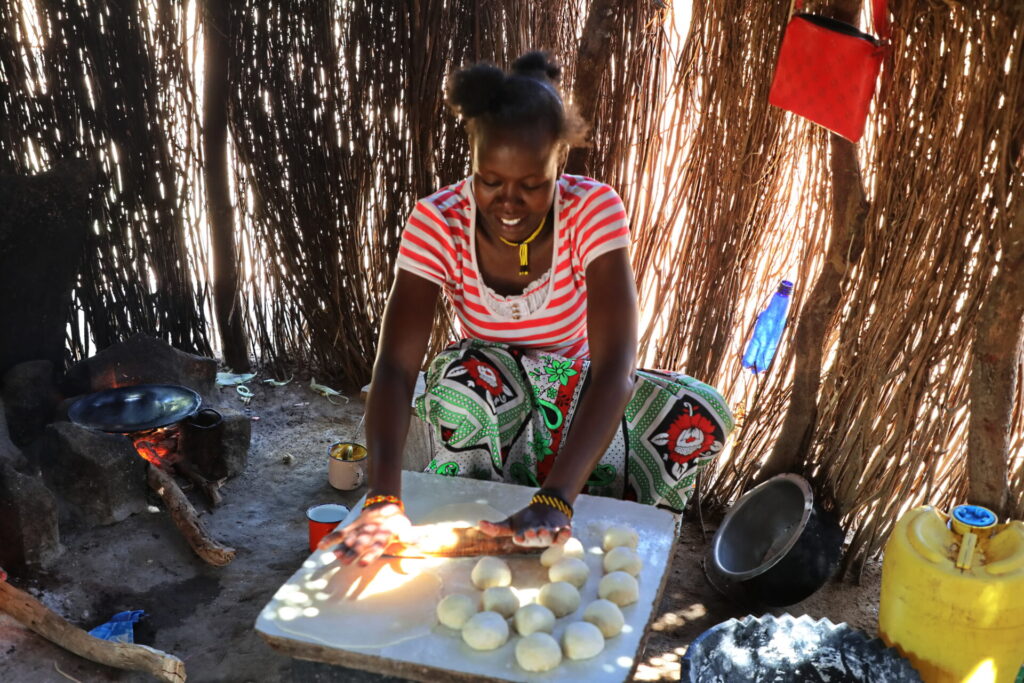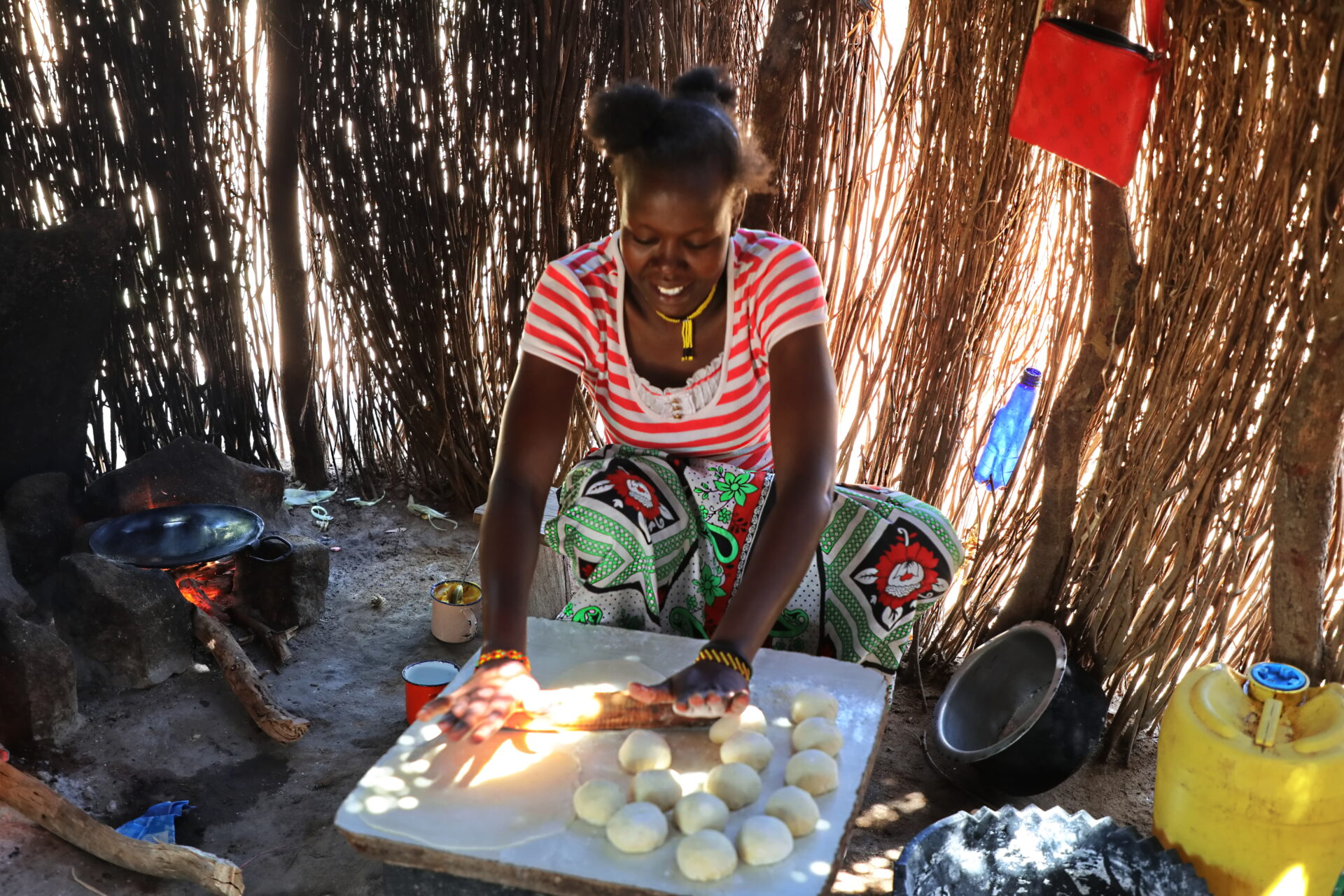In a remote village in Masol Conservancy, West Pokot County, Teresa Elolia is a renowned entrepreneur with a reputation growing as quickly as her ambitions. Growing up, her world revolved around family, but as the years passed, she realized that her passion could be something more. When an unexpected opportunity came her way, Teresa saw the chance to turn her skills into something tangible, setting her on a path she hadn’t anticipated.
Born into a modest household, her family provided a stable environment, allowing her to focus on what mattered most—education. However, Teresa’s life took an unexpected turn when she became pregnant in Grade 7 with her first child, yet despite the odds, she managed to complete her primary school education. But after joining Form 1, she soon became pregnant with her second child. Struggling to balance motherhood and education, Teresa made the difficult decision to drop out of school and focus on raising her children. At a young age, Teresa later met a man who fathered her third child. However, this relationship proved to be another challenge. The man, often lost in alcohol, could barely provide for the family. Left with no choice, Teresa parted ways with him and returned to her parents’ home.
With limited options and children to care for, Teresa began wondering how she could change her life’s trajectory. In 2022, through MashinaniWORKS’ Ujuzi Manyattani program, with the support of USAID, Teresa found hope. One of the local community members informed Teresa’s father, who didn’t hesitate to submit her name for enrollment. The beauty of Ujuzi Manyattani lay in its inclusivity—there were no education-level restrictions. Teresa eagerly chose to pursue catering, a craft she had always been passionate about.


“A few months into the training, I noticed a gap in the local market for baked goods like cakes, donuts, and mandazi, and I seized the opportunity,”
With just a packet of wheat flour and cooking oil, she prepared small batches and hawked them to nearby shops while juggling her studies. This helped her earn an income while getting popular for her services.
Upon graduating with her catering certificate and receiving a tool kit from the program, Teresa fully launched herself into the business world. Her catering skills allowed her to expand her offerings, and she soon started selling maize, beans, and sugar to local hotels, making around KES 12,000 from these sales alone. On a good day, Teresa’s catering business, including a mini hotel, brings in up to KES 6,000. Even on slower days, she can at least make KES 1,000—enough to sustain her family and ensure her children attend school. She no longer relies on her parents for financial support but also helps take care of her siblings; her stability has brought her a sense of independence she once only dreamed of.
With the growing settlement around the area, there has been increased competition in the local market, but the unique touch of her work and the skills she gained from Ujuzi Manyattani keep her ahead of the curve.
With dreams of expanding her business and even employing others, Teresa sees a future where her services are sought after far and wide. She also plans to invest in livestock, diversifying her income sources, and continually upgrading her skills to remain competitive.


